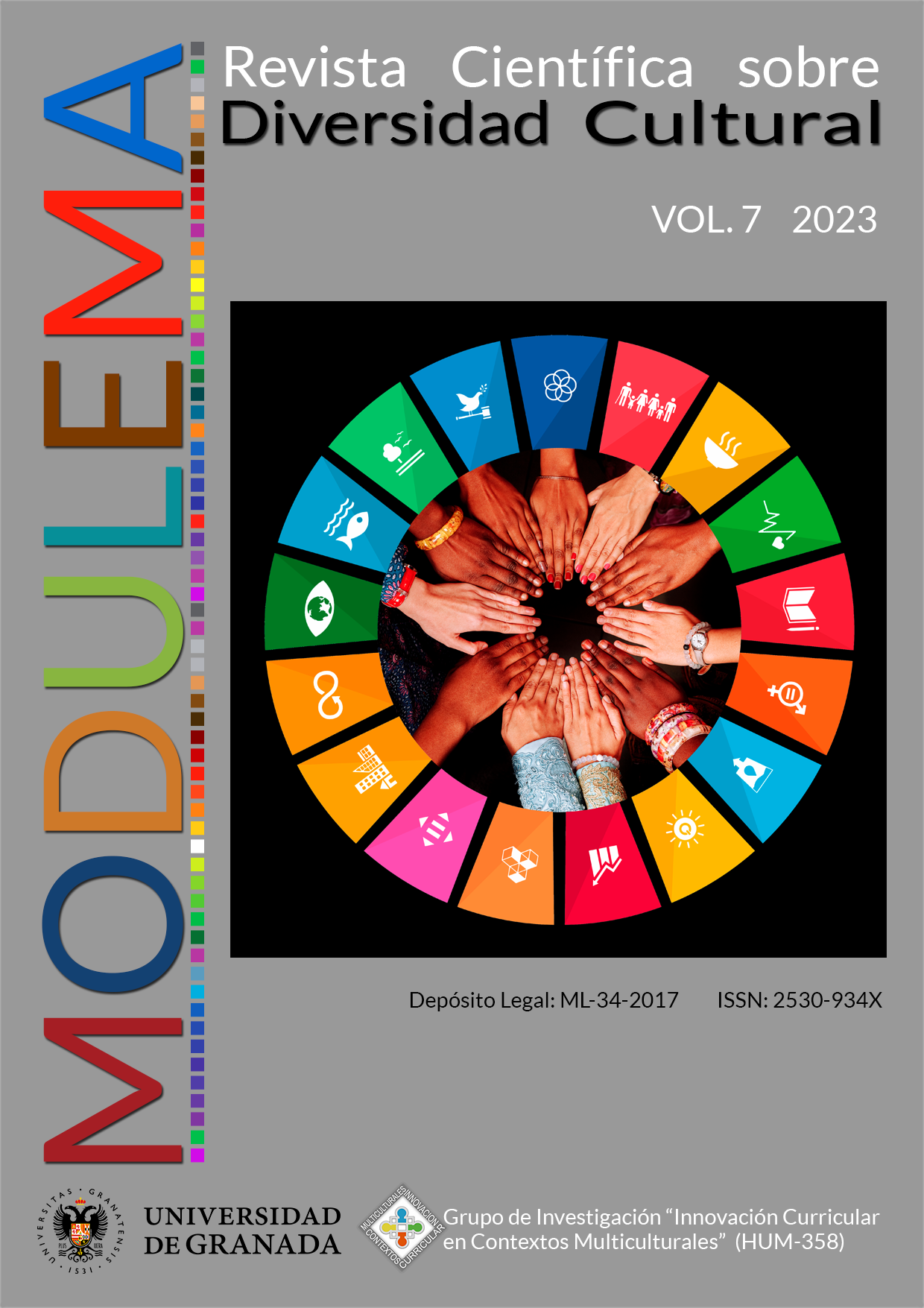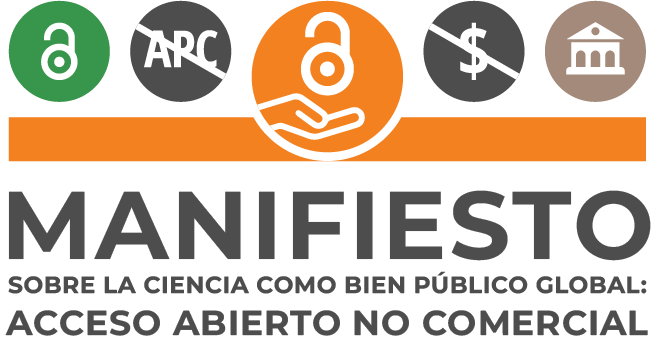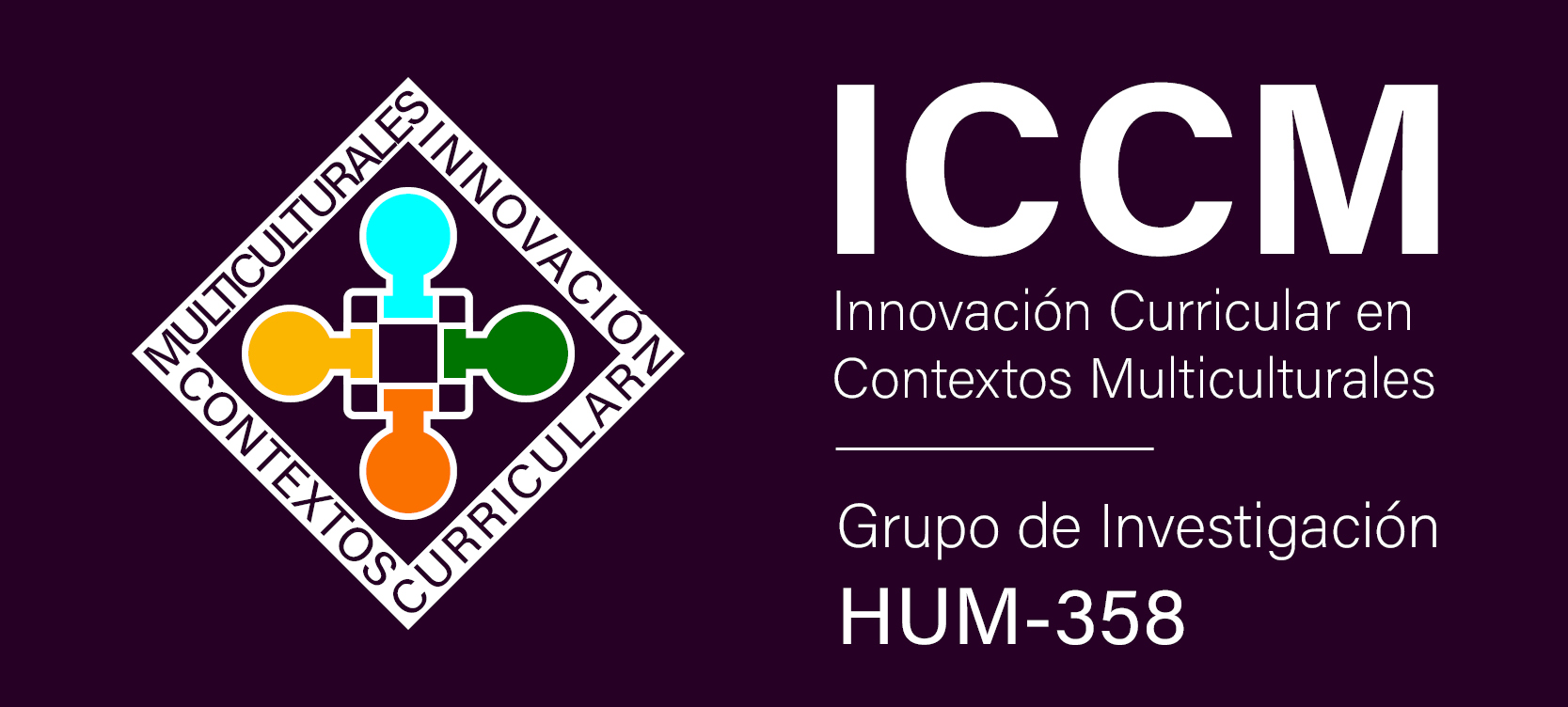Scale validation for bonding university projects in inclusive education (UPIE)
DOI:
https://doi.org/10.30827/modulema.v7i.27094Keywords:
Community boundary, Inclusive education, Validation, University ProjectsAbstract
Instrument validation is the main way to ensure that the results of scientific research and intervention processes demonstrate credibility. Linkage projects must be appropriate, relevant and demonstrate impact. Academic appropriateness refers, on the one hand, to linking research results with specific needs of educational institutions, curriculum, and training for the labor field. Relevance, on the other hand, refers to the suitability, value, and importance of the information resource for the project or research being developed. It involves the presentation of verifiable evidence that establishes such an information resource as reliable. Finally, the impact always involves some type of alteration in the characteristics of an object or problem, although this may only be in a portion of the object depending on where the impact is generated. The present work aims to validate an instrument to measure the appropriateness, relevance, and impact of the projects in inclusive education of the Special Education degree of the Secular Eloy Alfaro University of Manabí. A non-experimental, quantitative, cross-sectional design was chosen. For that, the validation was carried out with the presence of 8 experts who know the subject and the pilot application to 36 participants of the project. High levels of reliability were found in the Aiken tests, the reliability index by Cronbach’s alpha and the total reliability test. The psychometric properties of the instrument were examined, showing significant relationships between the dimensions.
Downloads
References
Angenscheidt, L. A. & Navarrete, I.(2017). Actitudes de los docentes acerca de la educación inclusiva. Ciencias Psicológicas, 11(2), 233-243. https://doi.org/10.22235/cp.v11i2.1500 DOI: https://doi.org/10.22235/cp.v11i2.1500
Barrios, R. (2017). Análisis de indicadores de los proyectos de vinculación de la Facultad de Antropología. UVserva: Revista Electrónica de la Coordinación Universitaria de Observatorios de la Universidad Veracruzana, 2, 28-33. https://doi.org/10.25009/uvs.v0i2.2372 DOI: https://doi.org/10.25009/uvs.v0i2.2372
Campos, G. & Sánchez, G. (2006). La vinculación universitaria y sus interpretaciones. Ingenierías, 9(30), 18-25. https://ingenierias.uanl.mx/anteriores/30/30_vinculacion.pdf
Caycho, T. (2018). Aportes a la cuantificación de la validez de contenido de cuestionarios en enfermería. Revista Cubana de Enfermería, 34(2), 1. https://revenfermeria.sld.cu/index.php/enf/article/view/2779/343
Del Cioppo, J. & Bello, M. (2018). Indicadores de impacto social para evaluación de proyectos de vinculación con la colectividad. Económicas CUC, 39(1), 105-116. http://dx.doi.org/10.17981/econcuc.39.1.2018.07 DOI: https://doi.org/10.17981/econcuc.39.1.2018.07
Estébanez, M. E. & Korsunsky, L. (2003). Medición de actividades de vinculación y transferencia de conocimientos científicos y tecnológicos. En R. I. (RICYT), El estado de la ciencia. Principales indicadores deficiencia y tecnología iberoamericanos/interamericanos (pp. 83-92.). Programa Iberoamericano de Ciencia y Tecnología para el Desarrollo (CYTED). http://www.ricyt.org/wp-content/uploads/2019/09/Estado_2003_11.pdf
Estupiñán, J., Villamar, M. Campi, A. & Cadena, L. (2016). Reflexiones acerca de la pertinencia e impacto de la educación superior en Ecuador desde su perspectiva actual. Revista Órbita Pedagógica, 3(3), 81-92. https://core.ac.uk/download/pdf/268044058.pdf
Flores, J. (2021). Vinculación con la sociedad: impacto del núcleo de apoyo fiscal en la generación de cultura tributaria. Journal of Science and Research, 6(1), 93-108. https://revistas.utb.edu.ec/index.php/sr/article/view/945
González, J., Yépez, V., & García, E. (2019). Vinculación con la colectividad: una propuesta de gestión. Revista Killkana Sociales, 3(2), 29-39. https://killkana.ucacue.edu.ec/index.php/killkana_social/article/view/464 DOI: https://doi.org/10.26871/killkana_social.v3i2.464
Guyatt, G., Rennie, D., Meade, M. O., Cook, D. J. & Haynes, B. (2003). Evaluating the quality of clinical practice guidelines: a critical appraisal of the Appraisal of Guidelines for Research & Evaluation (AGREE) Instrument. BMJ, 327(7417), 867-870.
Guzmán, C. (2014). El proceso extensionista universitario como vía para la pertinencia en la formación del futuro profesional. EspamCiencia, 5(1), 17-24. http://190.15.136.171/index.php/Revista_ESPAMCIENCIA/article/view/80
Izaguirre, J., Medina, V. & Gavidia, S. (2019). Impacto del Programa de Vinculación con la Comunidad de la Universidad Internacional del Ecuador en el Sector Independencia II – Barrios de Paz en Guayaquil, 2017 – 2018. Espíritu Emprendedor TES, 3(4), 17–27. https://doi.org/10.33970/eetes.v3.n4.2019.171 DOI: https://doi.org/10.33970/eetes.v3.n4.2019.171
Leech, D. L. & Barrett, K. J. (2005). Expert sampling in instrument development and validation. Psychological Methods, 10(3), 267-283.
Lemoine-Quintero, F. Á., Carvajal-Zambrano, G. V., Hernández-Rodríguez, N. R. & Delgado-Caicedo, Y. L. (2020). Rol y pertinencia en universidades del Ecuador en la actividad de vinculación con la sociedad. Maestro y Sociedad, 17(3), 437-453. https://maestroysociedad.uo.edu.cu/index.php/MyS/article/view/5212
León, A. (2004). Un modelo de vinculación universidad - PYME - administración pública para la creación de centros de desarrollo productivo en la Costa Caribe de Colombia. Ingeniería & Desarrollo, 15, 84-115. https://www.redalyc.org/pdf/852/85201507.pdf
López, R., Cedeño, G., Lescay, D., Mestre, U. & Meza, H. (2016). Relevancia del proceso de vinculación con la sociedad en la formación de profesionales en instituciones de educación superior del Ecuador. Revista Órbita Pedagógica, 3(2), 61-82. https://scholar.archive.org/work/z2c4p75yhvhojes2coo4z53zni/access/wayback/http://revista.isced-hbo.ed.ao/rop/index.php/ROP/article/download/70/67/
Moriña, A. & Carballo, R. (2018). Profesorado universitario y educación inclusiva: respondiendo a sus necesidades de formación. Psicologia Escolar e Educacional, 22(Esp), 87-95. https://www.redalyc.org/journal/2823/282362625010/html/ DOI: https://doi.org/10.1590/2175-35392018053
Perera, V. H., Melero, N. & Moriña, A. (2022). Prácticas docentes para una educación inclusiva en la universidad con estudiantes con discapacidad: Percepciones del profesorado. RMIE: Revista Mexicana de Investigación Educativa, 27(93), 433-454. https://www.scielo.org.mx/pdf/rmie/v27n93/1405-6666-rmie-27-93-433.pdf
Polaino, C. & Romillo, A. (2017). Vinculación con la Sociedad en la Universidad de Otavalo, Ecuador. Formación universitaria, 10(3), 21-30. https://www.scielo.cl/pdf/formuniv/v10n3/art04.pdf DOI: https://doi.org/10.4067/S0718-50062017000300004
Robles, P. & Rojas, M. (2015). La validación por juicio de expertos: dos investigaciones cualitativas en Lingüística aplicada. Revista Nebrija De Lingüística Aplicada a La Enseñanza De Lenguas, 9(18), 124–139. https://doi.org/https://doi.org/10.26378/rnlael918259
Rodríguez, A., Macías, N., & Briones, Y. (2022). La atención a las necesidades educativas específicas asociadas a la discapacidad: procesos y dificultades. Un estudio desde la vinculación universitaria. Revistas de Investigación, 46 , 127-142. https://doi.org/10.56219/revistasdeinvestigacin.v46i107.114 DOI: https://doi.org/10.56219/revistasdeinvestigacin.v46i107.114
Seañez, Z. P. & Guadarrama, V. H. (2022). La vinculación social universitaria: un camino hacia la pertinencia social. Emerging Trends in Education, 4(8A), 121-142. https://doi.org/10.19136/etie.a4n8A.4720 DOI: https://doi.org/10.19136/etie.a4n8A.4720
Sevilla, D., Martín, M. & Río, C. (2018). Actitud del docente hacia la educación inclusiva y hacia los estudiantes con necesidades educativas especiales. Innovus: Innovación educativa (México, DF), 18(78), 115-141. https://www.redalyc.org/journal/1794/179462782007/html/
Suárez, I., Trueba, B., Venegas, G. & Proaño, C. (2020). La pertinencia social universitaria ante el COVID-19. Revista Educare, 24(2), 249-272. https://revistas.investigacion-upelipb.com/index.php/educare/article/view/1329/1299 DOI: https://doi.org/10.46498/reduipb.v24i2.1329
Vera, K. V., Salazar, I., Casquete, R. & Nagua, J. (2019). Educación inclusiva: atención a la diversidad de las necesidades educativas especiales de los estudiantes de la Universidad Técnica de Babahoyo, extensión Quevedo. Journal of Science and Research, (CIEIS2019),4 291-300. https://revistas.utb.edu.ec/index.php/sr/article/view/774
Viña, N., Sacoto, V. & Landívar, J. (2019). Contribución de la Universidad ecuatoriana en beneficio de sectores vulnerables–Vinculación con la Sociedad. Espacios, 40(23), 1-11. https://www.revistaespacios.com/a19v40n23/a19v40n23p11.pdf
Zambrano, T. M., González, O. & Batista, A. (2020). System of integral information for social vinculation process the San Gregorio University of Portoviejo. Revista Conrado, 16(75), 142-149. https://conrado.ucf.edu.cu/index.php/conrado/article/view/1401
Downloads
Published
How to Cite
Issue
Section
License
Copyright (c) 2023 MODULEMA. Scientific Journal on Cultural Diversity

This work is licensed under a Creative Commons Attribution-NonCommercial-ShareAlike 4.0 International License.


















